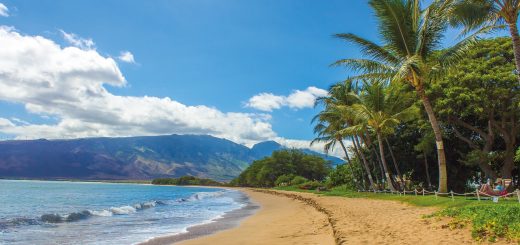Hawaii Lawmakers Attempting to Make Strides
The new year is set to see great promise in Hawaii, as lawmakers are planning on introducing a large number of measures targeted at the state’s homelessness problem, affordable housing, emissions, and state budget.
A proposal was created that would issues $2 billion in state-backed bonds to create more public housing, which would include both shelters and apartments. Hawaii has a current median housing value sitting at roughly $589,000, and is expected to grow within the next year by at least 4.5%. This may only further prevent residents from being able to afford housing in the Aloha State, directly affecting tourism rates.
There is a current statewide shortage of 60,000 housing units, and the proposed $2 billion bill to create more public housing would include transit-oriented development, shelters, expanded public housing, and the Department of Hawaiian Home Lands.
Regarding emissions, the state established a goal in 1990 to reduce greenhouse emission levels by the year 2020, but Senator Karl Rhodes is attempting to push that end date to 2030, as he feels that there is more that could be done. Additionally, the senator wants to instill a requirement for those traveling by state business to purchase carbon offsets for air travel.
With Hawaii’s expensive lifestyle consisting of expensive food, houses, and energy, lawmakers want to increase the minimum wage from $9.25 an hour to $10.10 by next year, though many feel that is still not enough. Representative Kaniela Ing proposed minimum wage be $15 an hour, then steadily increase to $22. A counterproposal was offered by senators of $12 an hour by the year 2020, then an increase to $14 in 2022.
Similar to their push for bettering emissions, lawmakers are taking the environment into great consideration, including rethinking what sunscreens are allowed by beachgoers in order to avoid bleaching coral reefs. Many sunscreens contain oxybenzone and octinoxate, both of which can contribute to coral bleaching. 18 senators proposed banning the sale of these sunscreens with said ingredients, and prohibiting the use of them for those lying on the beach.
Another concern lawmakers are tackling is the state’s feral cat problem, which is blamed for multiple problems throughout its borders. The number of endangered birds has decreased due to their feline predators, and Hawaiian monk seals have begun contracting a disease spread by the remains of these cats. Representative John Muzio proposed a bill that would pay the Department of Health to hire contractors who would catch, spay, and neuter the animals; a great alternative to euthanasia.
The state of Hawaii is likely to see great changes in 2017 that would improve life for all of its residents, and potentially grow its already impressive tourism rates. Should all of the proposed bills mentioned above be approved, the Aloha State would set the bar for economically conscious efforts in the United States.


